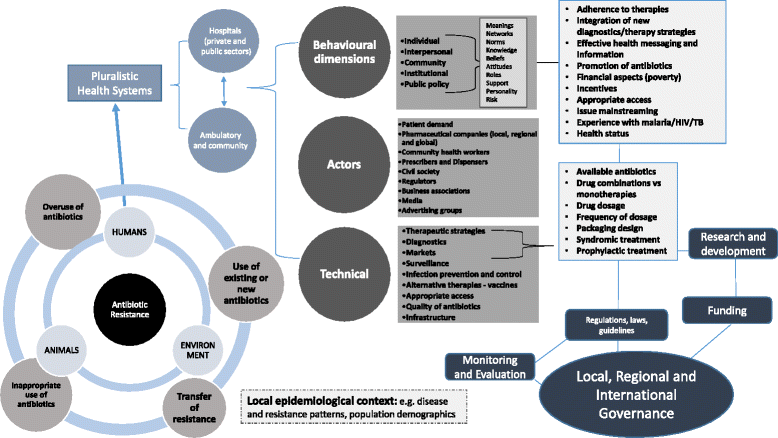Towards the just and sustainable use of antibiotics
- PMID: 27761263
- PMCID: PMC5055727
- DOI: 10.1186/s40545-016-0083-5
Towards the just and sustainable use of antibiotics
Abstract
The emergence and spread of antibiotic resistant pathogens poses a big challenge to policy-makers, who need to oversee the transformation of health systems that evolved to provide easy access to these drugs into ones that encourage appropriate use of antimicrobials, whilst reducing the risk of resistance. This is a particular challenge for low and middle-income countries with pluralistic health systems where antibiotics are available in a number of different markets. This review paper considers access and use of antibiotics in these countries from a complex adaptive system perspective. It highlights the main areas of intervention that could provide the key to addressing the sustainable long term use and availability of antibiotics. A focus on the synergies between interventions addressing access strategies, antibiotic quality, diagnostics for low-resource settings, measures to encourage just and sustainable decision making and help seeking optimal therapeutic and dosing strategies are key levers for the sustainable future of antibiotic use. Successful integration of such strategies will be dependent on effective governance mechanisms, effective partnerships and coalition building and accurate evaluation systems at national, regional and global levels.
Keywords: Antibiotic/antimicrobial resistance; Equity; Justice; Pluralism; Sustainability; Systems.
Figures
References
Publication types
LinkOut - more resources
Full Text Sources
Other Literature Sources

